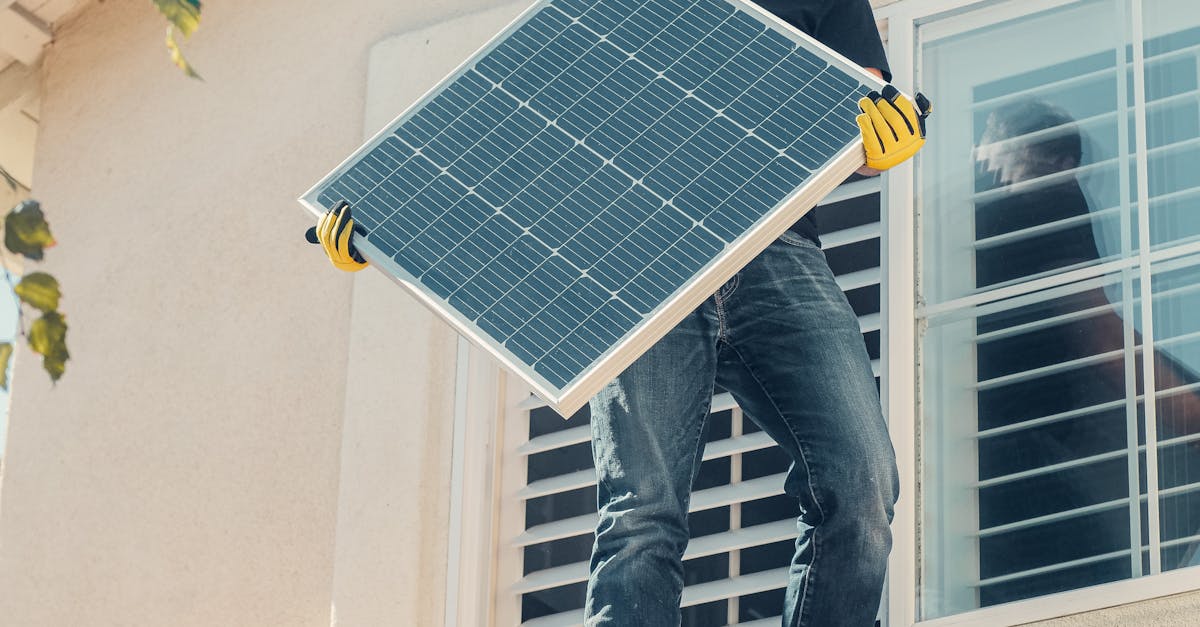Historical Development of Residential Solar PV Systems

Growth of Solar Installations
The adoption of residential solar photovoltaic (PV) systems has witnessed a dramatic rise over the past decade. This growth can be attributed to a combination of decreasing costs of solar technology and increasing efficiency of solar panels. As manufacturing processes improved, the price of solar cells dropped significantly, making them more accessible to homeowners. The availability of various financing options, such as solar leases and power purchase agreements, further encouraged this shift, allowing homeowners to install systems with little to no upfront cost.Solar PV Cheshire
Government incentives have played a crucial role in promoting solar installations among residential properties. Tax credits, rebates, and feed-in tariffs have made solar energy a financially viable option for many households. Additionally, community solar programmes have emerged, providing opportunities for those who cannot install panels on their own roofs to benefit from solar energy. The interplay of technological advancement, financial incentives, and increased environmental consciousness has created an ideal environment for the proliferation of solar installations in residential areas.
Trends in Homeowner Adoption
The adoption of residential solar PV systems has seen a significant rise over the past decade, with more homeowners recognising the benefits of renewable energy sources. Incentives such as government subsidies and tax rebates have played a crucial role in encouraging investment in solar technology. Many households are motivated by the prospect of reducing their energy bills, while the potential for increased property value enhances the appeal. Furthermore, diverse financing options, from leasing to power purchase agreements, have made solar installations more accessible to a wider demographic.
The growing awareness of climate change has shifted consumer preferences towards sustainable options. Homeowners are increasingly seeking out solutions that contribute to environmental preservation. Additionally, the rise of social media and digital platforms has facilitated the sharing of information regarding the advantages of solar energy, fostering a community of informed consumers. This trend reflects a broader cultural shift where individuals prioritise sustainability in their lifestyle choices, reinforcing the commitment to renewable energy within residential spaces.
The Influence of Environmental Awareness
A growing consciousness regarding environmental issues has significantly influenced the adoption of residential solar PV systems. Concerns over climate change, resource depletion, and sustainable living are driving homeowners to seek greener alternatives. The realisation of the negative impacts of fossil fuel consumption is prompting many individuals to consider how their energy choices affect both the planet and future generations. This increasing environmental awareness has led to more informed decisions, with a substantial number of homeowners evaluating the benefits of renewable energy sources as a viable option.
he growth of solar installations has seen significant increases due to advancements in technology, government incentives, and rising environmental awareness, leading to more homeowners opting for solar energy solutions.
What trends have emerged in homeowner adoption of solar energy?
Trends in homeowner adoption include increasing affordability of solar panels, the rise of financing options, and a growing interest in energy independence and sustainability.
How does environmental awareness influence solar panel adoption?
Increased environmental awareness has led many homeowners to recognise the importance of renewable energy sources, driving them to adopt solar panels as a means to reduce carbon footprints and contribute to a more sustainable future.
What role do smart home technologies play in the integration of solar energy?
Smart home technologies enhance the integration of solar energy by allowing homeowners to manage their energy consumption more efficiently, often through home energy management systems that optimise energy usage and savings.
Related Links
10 Benefits of Installing a Residential Solar PV SystemWhy You Should Switch to Solar Energy for Your Home
Roundup of Government Incentives for Residential Solar PV
Review of the Top Residential Solar PV Systems in 2023
Why Residential Solar PV Systems are Worth the Investment
What to Consider When Upgrading Your Solar PV System